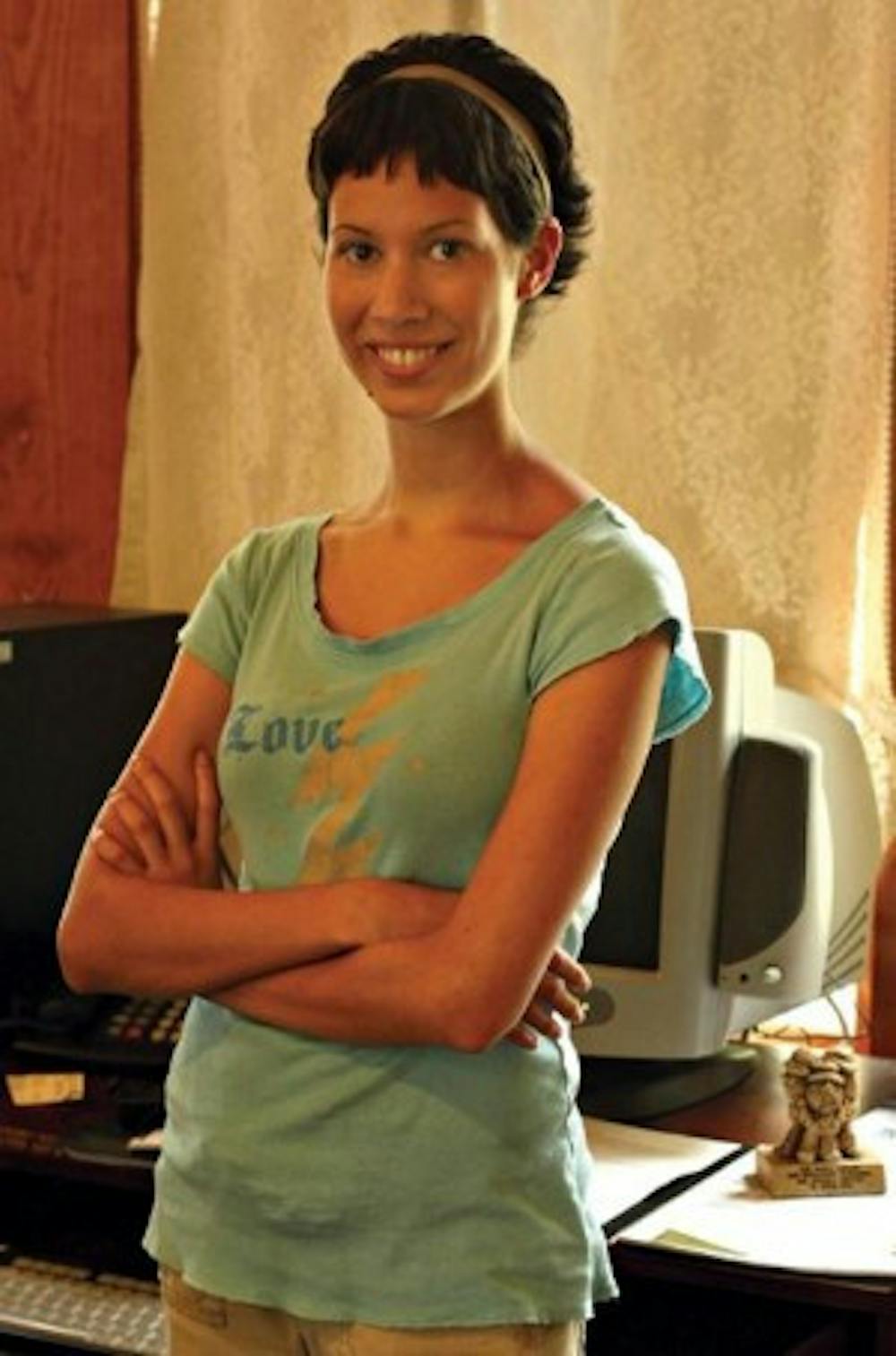Candy Ganyo wants you to know she's not a prostitute, drug addict or alcoholic.
But Ganyo was homeless, and to many people, there isn't much of a difference, she said.
Ganyo, 51, spent about two years lining up for free food, washing in store bathrooms and sleeping in the backseat of a car parked in various Gainesville lots.
Now, she is working alongside homeless advocates, like Amanda Haymond, to give a voice to the county's nearly 1,400 men, women and children who will sleep on the street tonight.
Haymond, a Las Vegas native and AmeriCorps volunteer, moved to Gainesville last month to address what she calls the dehumanization of the homeless through a program that aims to dispel stereotypes and have people see a face rather than an issue.
The program is called "Faces of GRACE Speakers' Bureau" and will hold presentations beginning this fall.
The bureau, which is part of the city and county 10-Year Plan to End Homelessness, is made up of homeless and formerly homeless people willing to talk about their experiences.
Twelve similar speakers' bureaus, all coordinated through a nationwide program, will begin operating across Florida this year.
The state ranks No. 1 in documented attacks against the homeless for the last three years, according to speakers' bureau statistics.
Haymond's interest in listening to an often-ignored sect of society began six years ago when she was working at a public library in Las Vegas.
She said her perceptions of the tired-looking, often-unkempt people were stereotypically uninformed at first.
Then, she did something she says even do-gooders often don't take the time to try.
She talked to them.
"The minute I saw them as people, only with problems, I couldn't just say, 'OK, bye,'" she said. "I wanted others to hear their stories, see their faces and how they're like anyone else."
So Haymond started Forgotten Voice, a Las Vegas newspaper written by homeless residents, formerly homeless people and their advocates.
The paper's name came from one of its homeless writers who told Haymond he thought it was a shame that "everybody talks about the homeless, but you never hear what the homeless have to say."
But this fall, Gainesville middle schools, high schools, university campuses, religious groups and civic organizations will not only hear what the homeless have to say, but they will also meet the people saying it.
Jon DeCarmine, executive director of the City of Gainesville / Alachua County Office on Homelessness, said getting to know the homeless on an individual level makes it harder for people to view them as less than human.
"We want to show housed people these guys aren't monsters," DeCarmine said. "You don't call someone you know personally a bum or a vagrant."
He said he thinks people are typically afraid of the homeless because they shed doubt on what Americans are raised to believe.
"They've worked hard all their lives and have just been beat down," he said. "People don't want to confront what they see as the system failing."
According to bureau statistics, more than one-third of people without a home in Alachua County are under 18 years old.
Ganyo, who is now living in a friend's home, said the number of young people living on the streets shows that being homeless is not always a choice.
"No kid would pick sleeping on a bench over a warm bed," she said. "Usually, we're just people who can't get out of a bad situation."
Though she worked as a substitute teacher for several years, Ganyo said getting hired for a job when you don't have a running car or phone is almost impossible.
She estimated that about 75 percent of the homeless people she knows are physically or mentally handicapped, which also makes work difficult to come by, she said.
"So much has got to be done," Ganyo said. "But so much can be done with a little human courtesy."






